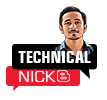Algorithmic trading has taken over the capital markets, notably the trading sector, in recent years, particularly in the last ten years, due to the enormous development of FinTech technologies that have increased the capacity of the financial industry.
The implementation of Artificial Intelligence (AI) and Machine Learning (ML) has considerably helped both institutional and retail traders in terms of providing unexpected gains and appealing market expansion potential. These rapid technological advancements and their adoption have also opened up a wide range of career options.
According to The Economics Times, due to the flourishing markets and API-driven trading, many students and aspiring traders across the world are rushing to this profession in the hopes of thriving and exciting job opportunities in quantitative trading. Now is the time for everyone to realise the true potential of algorithmic trading.
Scope of Algorithmic Trading
A report by Mordor Intelligence, “ALGORITHMIC TRADING MARKET – GROWTH, TRENDS, COVID-19 IMPACT, AND FORECASTS (2022 – 2027)” states that:
- During the forecast period 2022-2027, the Algorithmic Trading Market will grow at a CAGR of 10.5%
- The widespread usage of AI, machine learning, and big data in the financial services sector is having a substantial impact on the market growth for algorithmic trading.
- It is anticipated that the application of AI and algorithms in financial services, and the demand for cloud-based solutions will generate attractive market expansions and opportunities
- Some of the world’s central banks started using such technology to advance Algo trading.
- High-frequency traders execute a massive volume of trades daily, which makes leveraging automated trading software necessary.
After considering everything said above, it can be concluded that there will be a significant rise in demand for programmers, developers, traders, and other tech-based job opportunities.

Another report by Business Insider, states that “With the aggregate potential cost savings for banks from AI applications estimated at $447 billion by 2023, banks are finding new ways to incorporate the tech into their services.”

Some hedge funds and major trading firms, such as Blackrock, Renaissance Technologies, Rebellion Research, and KFL Capital, are solely based on AI.
To harness their strength and advance technology, businesses have started utilising more recent technologies like AI. They need people with the appropriate set of abilities to do this, which will allow them to outpace the competition. In this age of automation, programming has emerged as the most in-demand skill.
Skills and Certifications needed in algo trading
Skills:
Any dynamic and cutting-edge sector like algorithmic trading requires skills and competence. In order to keep a competitive edge while applying for jobs, people must continually develop and maintain a certain skill set.
For a successful career in algo trading, you need to possess some of the most important and necessary skills such as:
- Knowledge of Mathematics and Statistics – Algo trading revolves around playing along with tonnes of data and numbers.
- Analytical skills – An analytical mindset is highly valued and considered essential for quantitative traders and developers.
- Financial market understanding – Quantitative trading involves dealing with various global markets and financial instruments such as stocks, derivatives, equities etc.
- Knowledge of technologies and Programming skills – Being familiar with programming languages (such as Python, C++, R, etc.) and having sound knowledge of technological advancements can be advantageous.
- Quantitative analytical skills – Quantitative analysis relies on mathematical and statistical models for risk management, to get market data, market prediction and strategy development.
- Ability to take risks – Traders must have confidence in their backtested strategies and be prepared to deal with the associated risks when developing their trading strategies
Certifications and Education Requirements:
A specific certification or a specific educational background is not necessary to become an algorithmic trader. All that is necessary is a certain set of talents, specialised job experience, and education. Algorithmic trading is a field that students, engineers, programmers, and even conventional traders seek to enter.
However, if you’re a student and trying to decide what career or degree to pursue, here is a list of educational degrees that can help you be able to handle and perform a range of duties:
- Bachelor and Masters degree in Finance
- Masters in Financial Engineering
- Masters in Data Science
You can also pursue some executive programmes, like an algorithmic trading course. Many developers with non-technical backgrounds are in great demand, including those from the telecom industry and other industries with a strong programming focus.
Look at these undergraduate and graduate degrees that are useful for algorithmic trading, the skill sets acquired in each degree (for creating a foundation for learning algorithmic trading), and the skill sets missed in each:
For Undergraduate degrees:
| Degrees | Will be helpful to gain the following skills which can make a base for learning algorithmic trading |
| Artificial Intelligence & Machine Learning | Machine learning Programming |
| Computer Science | Programming |
| Mathematics/Statistics | Statistics & Probability Monte Carlo |
| Finance | Fundamental analysis Trading/Finance (Basics of markets) Risk management |
For Postgraduate degrees:
| Degrees | Will be helpful to gain the following skills which can make a base for learning algorithmic trading |
| Artificial Intelligence & Machine Learning | Machine learning Programming |
| Computer Science | Programming Networks and systems |
| Mathematics/Statistics | Statistics and Probability theory Stochastic calculus Advanced calculus |
| Financial engineering | Machine learning Statistics and Probability theory Stochastic calculus Risk management Programming Quantitative analysis |
| Finance | Risk management Quantitative analysis Trading/Finance (Basics of markets) |
Job Opportunities in Algo Trading
According to the report published by Allied Market Research, “The global algorithmic trading market garnered $12.14 billion in 2020, and is expected to garner $31.49 billion by 2028, manifesting a CAGR of 12.7% from 2021 to 2028.”
The use of algorithms in trading is now widely recognised and accepted. Since algorithmic trading strategies may work miracles, developed markets have embraced them to a considerable extent. The need for algorithmic trading employment has increased as large banks, hedge funds, and other institutional entities hire the best people to keep ahead of the competition.
According to QuantInsti, many types of positions are available in algorithm trading, including:
- Quantitative Trading Roles:
- Desk Quant – Implement trading-specific pricing models.
- Model Validation Quant – Responsible for establishing internal standards for model creation, testing, and governance; reviewing and challenging models to verify their suitability and compliance with market expectations.
- Front Office Quants (FOQs) – Studying the market trends, summarizing the data for traders, and identifying possible opportunities and drawbacks.
- Investment/Asset Management Quants – Developing and employing algo investment strategies that are methodically designed to administer a fund and make investing decisions
- Quantitative Research Analyst– a professional who applies complicated modelling to financial and risk management issues using statistical and mathematical techniques. Firms utilise this to decide on financial and business matters.
- Quant Developer – create and maintain quantitative models for a number of investment banks or financial services organisation operations.
- Statistical Arbitrage Quant – Identify data patterns, analyse them, and suggest automated trades based on the results.
- Capital Quant – Models the bank’s capital needs and exposure to credit risks.
- Quantitative Trader – Employs quantitative and mathematical techniques to assess financial markets. They can assess risks and locate trading opportunities in this way.
- Algorithmic Trader – Algorithmic traders utilise complex algorithms, mathematical models, and human supervision to make choices like buying or selling financial instruments. They also use High-frequency trading technology, which allows them to execute multiple trades per second.
- HFT programmer – It primarily entails day-to-day coding, the deployment of techniques to speed up the system, and some high-level strategising to implement numerous trading strategies.
These are some of the most prevalent roles on the market. The algo trader has a wide range of additional responsibilities and employment prospects such as:
- Retail Algorithmic Trading
- Proprietary Algorithmic Trading
- Institutional Algorithmic Trading
- Roles related to technology and data management
- Automation Analyst
Conclusion
Algorithmic trading understanding, advanced financial abilities, mathematical prowess, and computer programming expertise are required to ace quant interview questions. Finding your first career might be difficult because many people are drawn to positions with high wages and extravagant incentives. Beyond that, ongoing innovation, risk-taking, and hard hours are necessary for continuing success.
Ref links:
https://blog.quantinsti.com/academic-backgrounds-algo-trading/
https://blog.quantinsti.com/making-career-algorithmic-trading/
https://www.makeuseof.com/top-tech-skills-finance-industry/
To Read More Tech Blogs Visit: Technical Nick

















